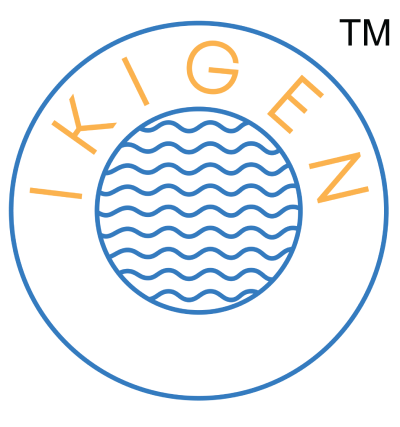In the last decade, demand for collagen has been on rise in the world of health and wellness. This essential protein is responsible for keeping our skin firm, our joints flexible and our connective tissues strong. But with various types of collagen supplements on the market, many people find themselves asking: should I choose marine collagen or bovine collagen?
In this blog, we’ll explore the differences between marine and bovine collagen, their benefits, and how to decide which is better suited to your health goals. We’ll also touch upon innovations in collagen sourcing, like Japanese fish collagen, and the role of hydrolyzed fish collagen peptides in boosting bioavailability.
What Is Collagen?
The most abundant protein in human body is Collagen. It serves as the structural foundation for our bones, tendons, ligaments, skin and hair. Wrinkles and stiff joints which we all know as signs of old age, are a result of low collagen in our bodies. With age, collagen production reduces in the body.
To replenish lost collagen, supplements are often recommended. These are usually derived from either marine (fish) or bovine (cow) sources and are often processed into collagen peptides—smaller, easier-to-absorb protein fragments.
Marine Collagen: A Potent Skin Booster
Marine collagen is extracted from various fish parts such as skin, scales and bones. It is a rich source of Type I collagen, the type most closely associated with skin health.
Benefits of Marine Collagen:
- Superior Absorption: Marine collagen peptides are smaller in size compared to bovine collagen, which allows for faster digestion and better absorption.
- Skin Health: Its high Type I content makes it ideal for promoting smoother, more hydrated, and youthful-looking skin.
- Sustainable Sourcing: Marine collagen often uses parts of fish that would otherwise go to waste, making it an eco-conscious option.
- Allergen-Friendly (for non-fish-sensitive individuals): It’s a great option for those avoiding beef or pork for religious or dietary reasons.
Japanese Fish Collagen: Premium Quality
Japan is known for its high-quality marine collagen products, especially those sourced from deep-sea fish. Japanese fish collagen is prized for its purity, traceability, and effective results, especially in skincare. Many hydrolyzed fish collagen suppliers from Japan adhere to strict safety and quality standards, making these products reliable and potent.
Bovine Collagen: Versatile and Joint-Friendly
Bovine collagen is primarily derived from the hides and bones of cows. It offers a combination of Type I and Type III collagen.
Benefits of Bovine Collagen:
- Joint Support: Type III collagen found in bovine sources plays a role in supporting cartilage and maintaining joint flexibility.
- Muscle Recovery: It supports muscle repair and is useful for people with active lifestyles.
- Skin Health: While not as focused on skin as marine collagen, it still contributes to elasticity and hydration.
- Cost-Effective: Bovine collagen is more affordable and readily available.
What Are Collagen Peptides?
Regardless of whether collagen is sourced from fish or cows, it’s often processed into collagen peptides—also known as hydrolyzed collagen. These are collagen molecules that have been broken down into smaller chains for better digestion and bioavailability.
- Hydrolyzed fish collagen peptides, in particular, are among the most absorbable forms and are favored for quick and noticeable effects, especially on the skin.
- Collagen peptides also mix easily into beverages, which is why they’re often included in collagen beverages and powders.
Marine vs. Bovine Collagen: A Quick Comparison
| Feature | Marine Collagen | Bovine Collagen |
| Source | Fish skin, bones, scales | Cow hides, bones |
| Type | Primarily Type I | Type I and Type III |
| Best For | Skin, hair, nail health | Joint, bone, muscle support |
| Absorption | Faster due to smaller peptides | Slower, larger peptides |
| Taste & Odor | Neutral to slightly fishy (depends on quality) | Mild, neutral |
| Cost | Typically more expensive | Usually more affordable |
| Sustainability | Often eco-friendly | Depends on farming practices |
Which One Should You Choose?
Choose Marine Collagen if:
- Your primary goal is glowing, youthful skin.
- You want faster absorption and higher bioavailability.
- You prefer fish-based or pescatarian options.
- You’re looking for a premium product like Japanese fish collagen.
Choose Bovine Collagen if:
- You’re more concerned about joint pain or muscle recovery.
- You want a cost-effective collagen source.
- You’re okay with animal-derived ingredients from cows.
How to Include Collagen in Your Daily Routine
- Collagen Beverages: These are great for quick, on-the-go nutrition. Choose a drink that includes marine collagen peptides or hydrolyzed fish collagen for skin benefits.
- Powder Supplements: Mix into smoothies, coffee, or tea.
- Capsules or Tablets: Easy for those who want convenience without preparation.
- Functional Food Supplements: Many wellness brands now offer collagen-enriched snacks or foods, often combined with vitamins for enhanced effect.
The Role of Quality and Sourcing
No matter which type you choose, always look at the quality of the supplier. A reliable fish collagen supplier or hydrolyzed fish collagen supplier should provide transparency around sourcing, purity, and production processes. When available, opt for Japanese fish collagen for its reputation for clean, effective formulations.
Final Thoughts
Both marine and bovine collagen have their strengths. Your decision should be based on your health priorities, dietary preferences, and budget. If skin health and fast absorption are your main goals, marine collagen peptides, especially our Ikigen Japanese Collagen, are an excellent option. For joint and muscle support, bovine collagen is a strong contender.
Ultimately, high-quality collagen peptides—regardless of origin—can play a valuable role in improving your overall wellness when taken consistently.

Leave a Comment